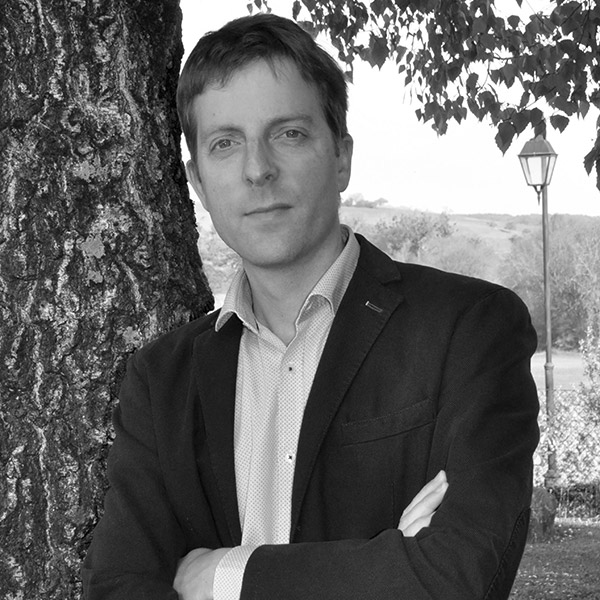DEBATE
Are research and activism compatible?
Can researchers use their scientific background to justify political activism? The geoscientist Augustin Fragnière and the biostatistician Servan Grüninger are of differing opinions.

Photo: zVg

Photo: Schweizer Monat
Researcher activism sometimes raises suspicions about impartiality. Yet, despite an unabating image, science has never known an environment devoid of values. It’s not neutral in this sense, and one’s choice of research topics is influenced by various political, economic, or social factors, regardless of whether activism is or isn’t present. However, in order to produce the most objective and reliable knowledge possible, the scientific approach is based on methods, e.g., experimental protocols, and on a particular organisation of work, e.g., peer review and community diversity. The application of these methods and the principles of scientific integrity concern all researchers, activist or otherwise.
Scientists are also citizens who benefit from freedom of expression and the right to assert their views in societal debates. Academic freedom, which includes the freedom to discuss publicly one’s research and its societal consequences, further reinforces this right. Moreover, there is a benefit in the existence of a vibrant academic community that engages with social and political issues and actively contributes to the public debate. Indeed, this can help identify issues that are sometimes overlooked, and promote creative and innovative solutions based on science.
Activism and research activity are therefore compatible, provided that certain good practices are respected, e.g., transparency about the nature of public interventions, scientific or activist, and about the limits of the area of expertise of the person who’s speaking. An effort to educate on the actual functioning of science would also help avoid some misunderstandings about its supposed neutrality and the role of researchers, especially among the general public and the political class.
Augustin Fragnière is an environmental policy philosophy researcher and Deputy Director of the Competence Centre in Sustainability at the University of Lausanne. He publishes on climate policy across a broad range of media.
Science aims to create reliable knowledge by defining matters precisely, scrutinising them and constantly subjecting them to critical questioning. Activism, on the other hand, is a social movement that campaigns for its concerns and wants to bring about concrete change. It’s this potential impact, not knowledge, that motivates those involved in activism. Although activist speech and action can refer to scientific evidence, as seen in the climate protection movement, activism cannot fulfil the demands that we generally make of science.
This is in part because activist demands contain certain preconditions and assumptions that elude direct scrutiny and thus have no claim to scientific reliability. Then there is the fact that you cannot establish a critical distance to your own goals in the moment of activism because you are condensing your demands into a few core messages while at the same time immunising them against criticism. If you didn’t do that, your demands would be lost in the noise of the media and in the minutiae of political debate. For example, if you’re opposed to animal testing, but during your protest you also acknowledge the historical significance of it for scientific research, then you’re dooming your endeavours to failure.
As activities, science and activism do not go together, neither in terms of their respective demands nor in terms of public perception. Nevertheless, good activists can still be good scientists. This apparent contradiction is resolved when you consider the activity separately from the actor: Someone acting in front of the camera cannot at the same moment be directing behind the camera. Yet there are people who can do both well. Thus, one can conduct research at the university and protest on the street. However, it becomes problematic when both activities are mixed, that is, when one claims scientific authority for one’s activism or when one practises science according to activist logic.
Servan Grüninger is a biostatistician who is completing his doctorate at the University of Zurich. He’s also the president of the thinktank ‘Reatch’. He regularly publishes opinion pieces on science and politics across a range of media.

Photo: zVg
Researcher activism sometimes raises suspicions about impartiality. Yet, despite an unabating image, science has never known an environment devoid of values. It’s not neutral in this sense, and one’s choice of research topics is influenced by various political, economic, or social factors, regardless of whether activism is or isn’t present. However, in order to produce the most objective and reliable knowledge possible, the scientific approach is based on methods, e.g., experimental protocols, and on a particular organisation of work, e.g., peer review and community diversity. The application of these methods and the principles of scientific integrity concern all researchers, activist or otherwise.
Scientists are also citizens who benefit from the freedom of expression and the right to assert their views in societal debates. Academic freedom, which includes the freedom to discuss publicly one’s research and its societal consequences, further reinforces this right. Moreover, there is a benefit in the existence of a vibrant academic community that engages with social and political issues and actively contributes to the public debate. Indeed, this can help identify sometimes overlooked issues and develop creative and innovative solutions based on science.
Activism and research activity are therefore compatible, provided that certain good practices are respected, e.g., transparency about the nature of public interventions, scientific or activist, and about the limits of the area of expertise of the person who’s speaking. An effort to educate on the actual functioning of science would also help avoid some misunderstandings about its supposed neutrality and the role of researchers, especially among the general public and the political class.
Augustin Fragnière is an environmental policy philosophy researcher and Deputy Director of the Competence Centre in Sustainability at the University of Lausanne. He publishes on climate policy across a broad range of media.

Photo: Schweizer Monat
Science aims to create reliable knowledge by defining matters precisely, scrutinising them and constantly subjecting them to critical questioning. Activism, on the other hand, is a social movement that campaigns for its concerns and wants to bring about concrete change. It’s this potential impact, not knowledge, that motivates those involved in activism. Although activist speech and action can refer to scientific evidence, as seen in the climate protection movement, activism cannot fulfil the demands that we generally make of science.
This is in part because activist demands contain certain preconditions and assumptions that elude direct scrutiny and thus have no claim to scientific reliability. Then there is the fact that you cannot establish a critical distance to your own goals in the moment of activism because you are condensing your demands into a few core messages while at the same time immunising them against criticism. If you didn’t do that, your demands would be lost in the noise of the media and in the minutiae of political debate. For example, if you’re opposed to animal testing, but during your protest you also acknowledge the historical significance of it for scientific research, then you’re dooming your endeavours to failure.
As activities, science and activism do not go together, neither in terms of their respective demands nor in terms of public perception. Nevertheless, good activists can still be good scientists. This apparent contradiction is resolved when you consider the activity separately from the actor: Someone acting in front of the camera cannot at the same moment be directing behind the camera. Yet there are people who can do both well. Thus, one can conduct research at the university and protest on the street. However, it becomes problematic when both activities are mixed, that is, when one claims scientific authority for one’s activism or when one practises science according to activist logic.
Servan Grüninger is a biostatistician who is completing his doctorate at the University of Zurich. He’s also the president of the thinktank ‘Reatch’. He regularly publishes opinion pieces on science and politics across a range of media.




